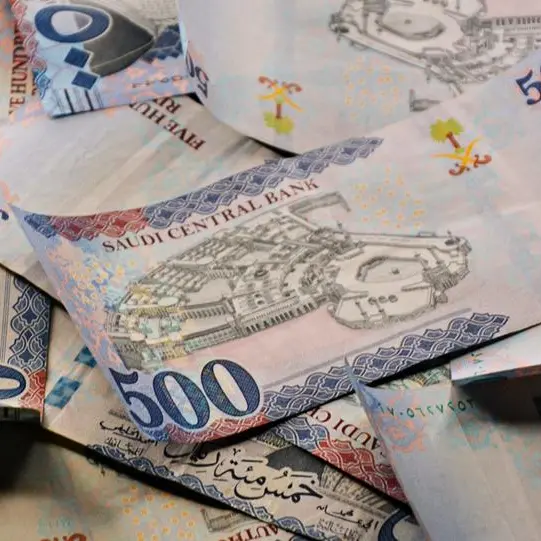PHOTO
KUWAIT CITY: The Executive Board of the International Monetary Fund (IMF) has concluded the Article IV consultation with Kuwait. A press release issued by IMF outlined the main points highlighted during the consultation: The economy is in recession due to OPEC+ production cuts, but the nonoil sector is recovering, and inflation is moderating.
Real GDP contracted by 3.6 percent in 2023, driven by a 4.3 percent decline in the oil sector and a one percent contraction in the non-oil sector. In the second quarter of 2024, real GDP contracted by 1.5 percent year-on-year, with a 6.8 percent decline in the oil sector, partially offset by a 4.2 percent rebound in the nonoil sector.
Headline CPI inflation decreased to 3.6 percent in 2023 and further moderated to 2.6 percent in September 2024. Lower oil prices and production have weakened Kuwait’s external and fiscal balances, but financial stability remains intact.
The external position remains strong, with the current account surplus moderating to 31.4 percent of GDP in 2023. Official reserves stood at US$47.6 billion at the end of 2023, covering 9.2 months of projected imports. The fiscal balance of the central government shifted to a deficit of 3.1 percent of GDP in the 2023/2024 fiscal year.
However, the general government fiscal balance, including SWF investment income and SOE profit transfers, remained strong at 26.1 percent of GDP. Credit growth slowed in 2023 due to higher interest rates, but banks maintained strong capital and liquidity buffers, with non-performing loans (NPLs) remaining low and well provisioned.
Kuwait’s economy is projected to remain in recession in 2024, contracting by 2.8 percent due to continued OPEC+ production cuts, before recovering in the medium term. Real GDP is expected to grow by 2.6 percent in 2025 as the cuts are unwound. The non-oil sector’s recovery will continue, with non-oil GDP expanding by 2.0 percent despite fiscal consolidation, and real credit growth picking up.
Headline CPI inflation is expected to moderate to 3.0 percent in 2024, as excess demand pressures ease and food prices decline. The current account surplus will decrease to 27.2 percent of GDP due to lower oil prices and production. The central government’s fiscal deficit is projected to rise to 6.6 percent of GDP in the 2024/2025 fiscal year, as reduced oil revenue outweighs expenditure cuts. The risks to Kuwait’s economic outlook are tilted to the downside. The economy is highly vulnerable to global risks due to its oil dependence, including commodity price volatility, fluctuations in global growth, and escalating regional conflicts.
Domestic risks stem from the pace of fiscal and structural reforms, which could either be delayed or expedited. These reforms are crucial for diversifying the economy away from oil, which would enhance resilience, and promote private investment. Executive Board Assessment Executive Directors agreed with the staff appraisal, acknowledging the ongoing recession but highlighting the recovery in the non-oil sector, moderating inflation, and strong financial buffers that offer protection against shocks.
However, they noted that risks to the outlook are tilted to the downside and emphasized the need for continued diversification efforts due to the economy’s heavy reliance on oil. Directors supported the authorities’ focus on transitioning to a more dynamic and diversified economy and stressed the importance of a comprehensive, well-sequenced package of fiscal and structural reforms. They emphasized the need for medium-term fiscal consolidation to improve sustainability and ensure intergenerational equity. They recommended a balanced approach focusing on current expenditure rationalization, non-oil revenue mobilization, and increased infrastructure investment.
The directors called for extending the CIT to all large domestic companies and adopting GCC-wide VAT and excise taxes. They also stressed the importance of controlling the wage bill, phasing out energy and water subsidies, and protecting vulnerable groups. The directors encouraged implementing a Medium-Term Fiscal Framework to strengthen budget planning and execution and urged quick enactment of the Financing and Liquidity Law to support fiscal financing. They agreed that the exchange rate peg remains a strong nominal anchor, and the current restrictive monetary policy stance is appropriate.
They recommended enhancing monetary transmission by developing the inter-bank and domestic sovereign debt markets. The directors acknowledged the stability of the financial sector but advised replacing the unlimited deposit guarantee with a limited insurance framework to reduce moral hazard. They also suggested phasing out bank lending rate caps to support efficient risk pricing.
Arab Times | © Copyright 2024, All Rights Reserved Provided by SyndiGate Media Inc. (Syndigate.info).





















